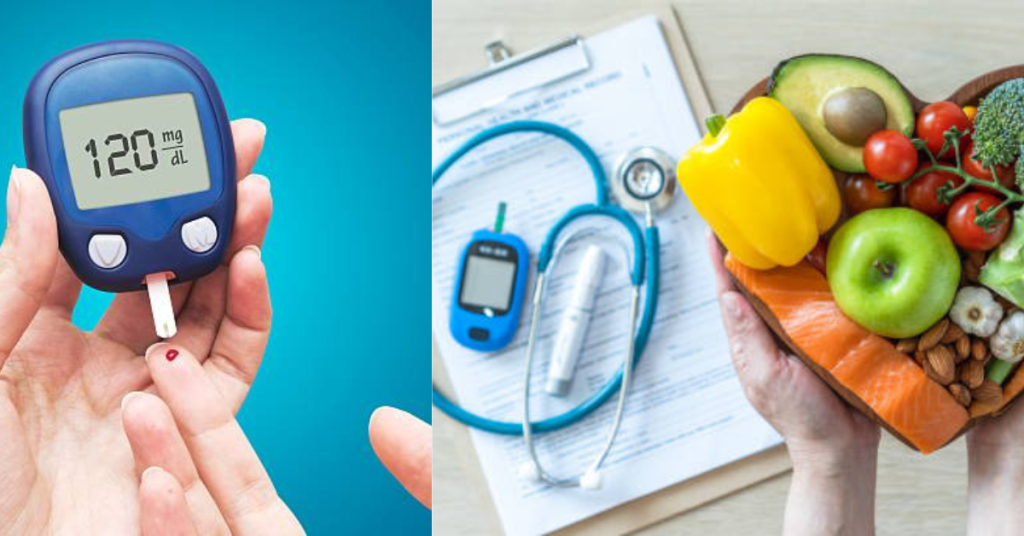Unveiling the Link Between Chemicals Associated with Diabetes
Diabetes, a prevalent metabolic disorder characterized by impaired glucose regulation, has long been a focal point of medical research. However, recent investigations have delved deeper into the intricate relationship between diabetes and a particular chemical compound integral to glucose metabolism. The chemicals associated with diabetes once overshadowed by the disorder itself, have emerged as a key player in understanding not only the metabolic intricacies of diabetes but also its potential ramifications on broader health outcomes. In this article, we embark on a journey to unravel the mysteries surrounding this chemical and its profound implications for human health.
In a groundbreaking revelation, recent research has unearthed a profound connection between uncontrolled diabetes and an elevated risk of developing tumors in the body. This study challenges the conventional wisdom regarding the protective role of specific genes against cancer, shedding light on a chemical compound that could potentially disrupt this defense mechanism.
Understanding the ‘Knowledge-to-Hit Paradigm’
The prevailing notion in cancer research has long been centered around the ‘Knowledge-to-Hit Paradigm,’ which posits that certain genes play a pivotal role in safeguarding against cancer. According to this paradigm, the complete inactivation of these genes in human cells is a prerequisite for cancer to manifest.
Disrupting the Protective Mechanism
However, the latest findings challenge this paradigm by highlighting the role of methylglyoxal, a chemical integral to the body’s glucose metabolism process. Contrary to previous assumptions, methylglyoxal has been found to deactivate these protective genes, paving the way for a deeper understanding of the interplay between Chemicals Associated with Diabetes.
Exploring the Research Insights Unraveling the Impact of Glucose Metabolism
The study, spearheaded by Dr. Lee Ren Kong from the National University of Singapore, sought to elucidate the factors contributing to cancer risk within families. While initially focusing on energy consumption patterns, the research uncovered a profound mechanism linking glucose metabolism to cancer susceptibility.
Temporary Inactivation of Tumor-Suppressing Genes
Through experimentation on lab-created human tissue, the researchers observed transient inactivation of the BRCA2 gene—a critical guardian against tumors in humans. This temporary disruption, induced by alterations in glucose metabolism, underscores the intricate relationship between metabolic processes and cancer development.
Heightened Sensitivity Among At-Risk Individuals
In a particularly alarming revelation, the study noted that individuals with a predisposition to breast or ovarian cancer exhibited heightened sensitivity to methylglyoxal. This heightened susceptibility underscores the urgent need for targeted interventions among high-risk populations.
Implications for Public Health and Beyond Rethinking Cancer Prevention Strategies
The implications of this research are far-reaching, necessitating a paradigm shift in cancer prevention strategies. By elucidating the role of methylglyoxal in disrupting tumor-suppressing genes, healthcare professionals can devise more targeted interventions to mitigate Chemicals Associated with Diabetes cancer risk, particularly among individuals with diabetes.
Emphasizing Lifestyle Modifications
Furthermore, the findings underscore the critical importance of lifestyle modifications in cancer prevention. Addressing factors such as diet and metabolic health becomes paramount in reducing the incidence of cancer, highlighting the need for holistic approaches to healthcare.
Conclusion: Chemicals Associated with Diabetes
The convergence of Chemicals Associated with Diabetes diabetes research and cancer biology has yielded groundbreaking insights into the intricate interplay between metabolic processes and tumorigenesis. By unraveling the role of methylglyoxal in disrupting protective genes, this study paves the way for targeted interventions and a paradigm shift in cancer prevention efforts.
FAQs
1. How does methylglyoxal impact cancer risk?
Methylglyoxal, a byproduct of glucose metabolism, has been found to temporarily deactivate tumor-suppressing genes, thereby increasing the risk of cancer development.
2. What are the implications of this research for individuals with diabetes?
Individuals with diabetes may face an elevated risk of cancer due to the disruption of protective genes by methylglyoxal. Thus, maintaining optimal metabolic health is crucial for cancer prevention.
3. Are there specific lifestyle modifications recommended to mitigate cancer risk?
Yes, adopting a healthy diet, engaging in regular physical activity, and managing diabetes effectively are key lifestyle modifications that can help reduce the risk of cancer.
4. How can healthcare professionals leverage these findings to improve patient care?
Healthcare professionals can use these insights to tailor screening protocols and interventions for individuals at heightened risk of cancer, particularly those with diabetes or a family history of cancer.
5. What avenues of research are recommended for further exploration in this field?
Further research is needed to elucidate the precise mechanisms through which methylglyoxal interacts with protective genes and to explore targeted therapeutic strategies aimed at mitigating cancer risk in high-risk populations.




Awsome post and right to the point. I don’t know if this is in fact
the best place to ask but do you people have any thoughts on where to hire some professional writers?
Thx 🙂 Escape rooms